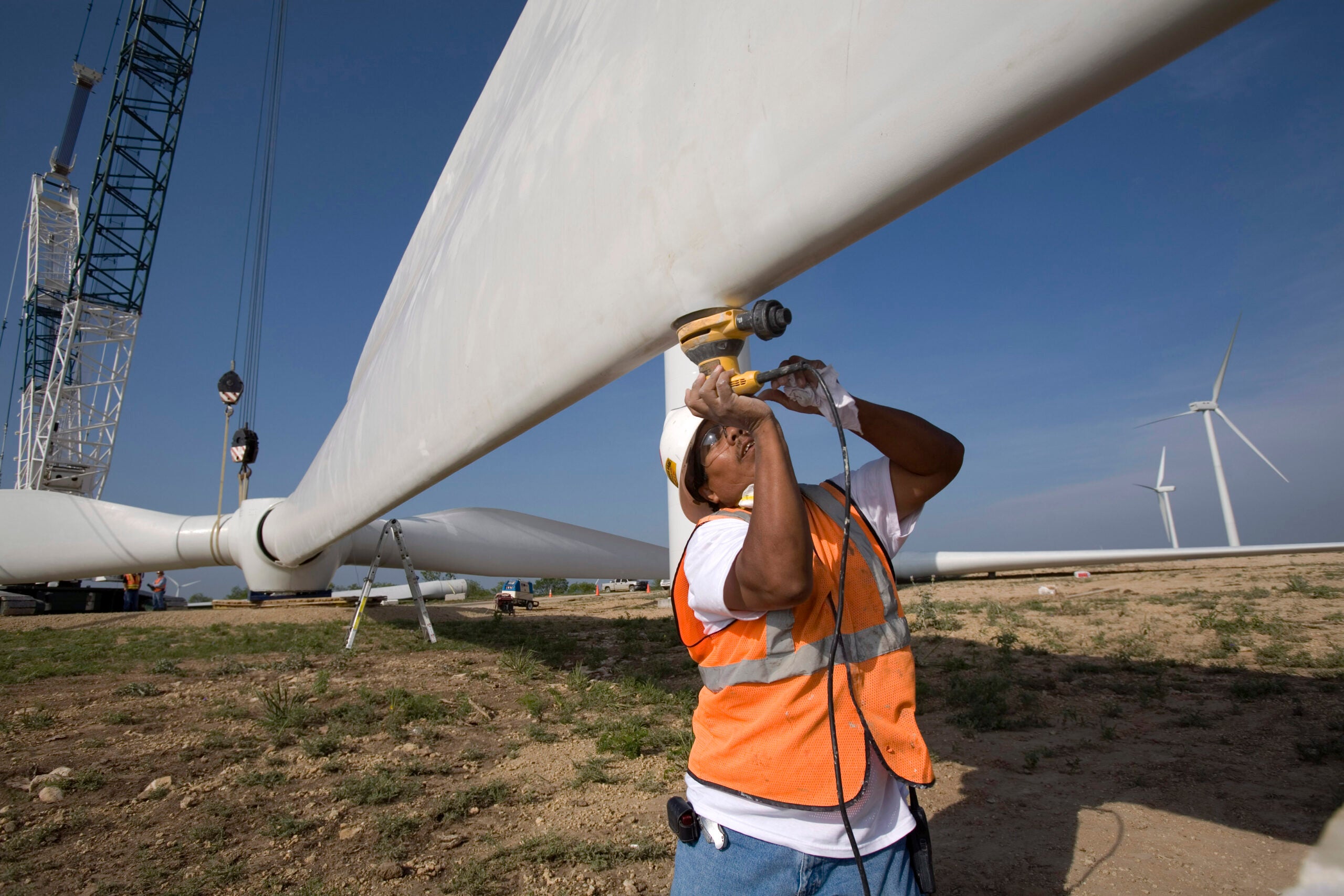
Reskilling and training workers for a clean energy future. Photo: Robert Nickelsberg/Getty Images
By Mandy Rambharos, Vice President, Global Climate Cooperation
As the world moves towards greener, low-carbon futures, it’s imperative that no one is left behind – including those working in fossil fuel industries and the communities they support.
A new report from Environmental Defense Fund, ‘Just Transition and Safeguards Framework’ offers a roadmap for countries and energy companies alike to successfully navigate the complexities of transitioning to clean energy while ensuring fairness and equity at every step of the way.
Guidance from this framework outlines how to empower local stakeholders – from frontline communities to Indigenous Peoples – ensuring everyone has a seat at the table and a fair share in the benefits of this monumental shift.
The concept of a ‘just transition’ isn’t new by any means. It was first developed by North American trade unions and environmental justice advocates and has since become a global call to action. As this big idea – which is simultaneously inspiring, ambiguous, and vast in scope – spreads across the world, it must adapt to local challenges, economic realities, and social norms.
While a just transition will (and should) look different from West Virginia to South Africa, EDF’s framework aims to help decision-makers understand the principles that should be core to every just transition plan – removing the ambiguity and providing clear waypoints toward true climate justice.










